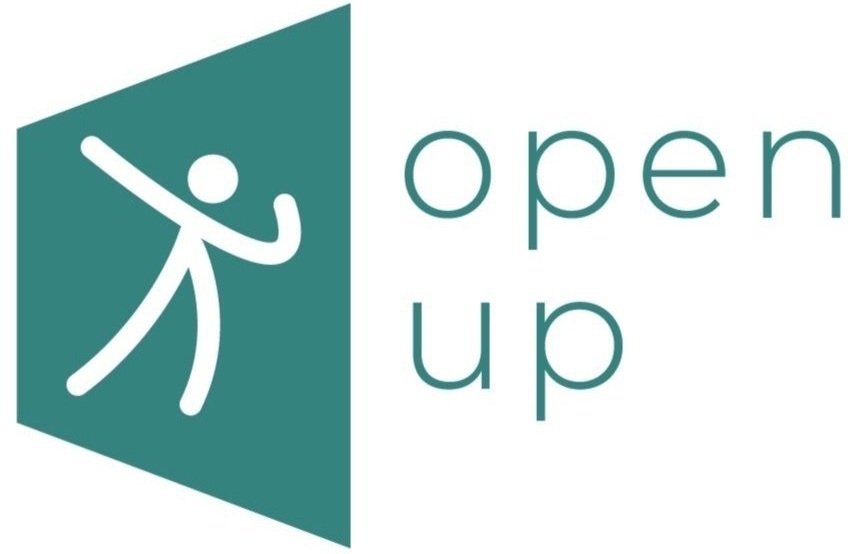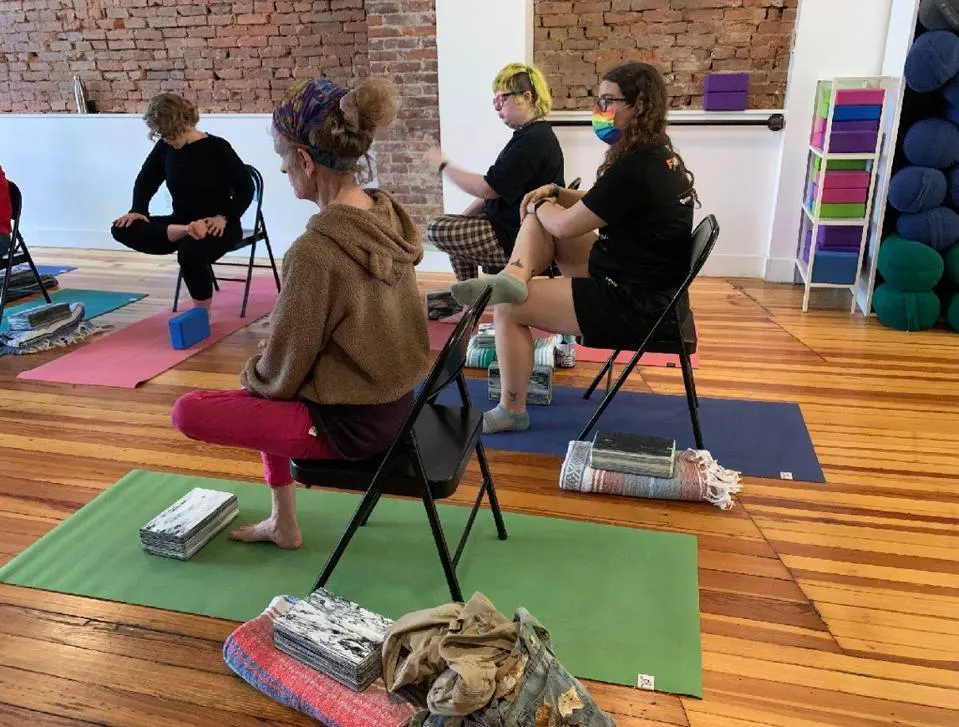Narrowing The Research-To-Practice Divide Through Community Engagement With Dr. Rachel Robertson
Originally published in August 2024 on Forbes.com
As a nonprofit organization, we’ve experienced how building a bridge between academia and community can result in collaborative research that can lead to sustainable, impactful programs that enrich both scholarship and the communities they serve. Universities and researchers can serve as important resources for nonprofits and individuals, but the reverse is equally important.
We discussed this topic recently with Dr. Rachel Robertson from the University of Pittsburgh, who has partnered with our organization for the last few years. Marissa Vogel, Co-Founder and Director of Operations & Fundraising at Open Up, facilitated the conversation. Open Up’s (Pittsburgh, PA) mission is focused on mindfulness and accessibility, and centering its programming around people with disabilities.
Dr. Rachel Robertson, a leading education researcher, partners with Open Up to make wellbeing accessible to all.
Marissa: Welcome! Can you introduce yourself and describe your professional experience?
Dr. Robertson: I’m an associate professor of special education in the Department of Teaching, Learning, and Leading at the University of Pittsburgh (Pitt), and I direct the education doctorate program. I hold a Ph.D. in Special Education and am a
board-certified behavior analyst. My work focuses on children and adults with autism who engage in challenging behaviors that limit their access to educational and community environments. My research aims to increase their access to positive and affirming educational and social environments and improve their overall quality of life, mostly by teaching new communication skills and altering the ways typical adults respond to them in the environments they're living in.
Marissa: How did you come to partner with us here at Open Up?
Dr. Robertson: We first met at a Leadership Education in Neurodevelopmental Disabilities (LEND) event, where I was struck by how aligned Open Up's mission was with my interest in holistic efforts to improve quality of life for people with disabilities. Some time later, I reached out to connect and see if I could be helpful in any way. I had already attended some Open Up classes and really enjoyed them. They offered a great mix of physical activity, mindfulness, and social connection, all accessible to people with disabilities, so I saw the potential for impactful collaboration. I feel there are broader issues of accessibility in social spaces to address for people with disabilities, and Open Up’s mission resonated deeply with me.
Marissa: I’m so glad you decided to reach out! Can you discuss the research project we've worked on together?
Dr. Robertson: The primary project we've collaborated on is Supporting Wellbeing in Autistic Adults through Yoga (SWAY). We tailored different classes to support autistic adults and their caregivers and studied the results, focusing first on individuals with significant communication challenges and later on those who communicate verbally. I've also shadowed school-based work and we’ve discussed doing more around that. Engaging with Open Up has been incredibly impactful for me.
A glimpse into our research: mindfulness and community coming together.
Marissa: This partnership has highlighted for me that there are many ways to advocate, educate, collaborate, and connect with people around meaningful ideas. As an academic, what benefits do you see in engaging with community organizations?
Dr. Robertson: There are countless benefits. It allows me to hear and learn directly from stakeholders and the community who could be impacted by the work, and see the real-world impact of it. It bridges the gap between research and practice, making the research more relevant and accessible to the communities it aims to serve. This mutual exchange enriches both my work and the community’s experiences. I don’t want to do my research in any other way at this point.
Marissa: We’ve also found it’s essential to involve individuals to ensure our programs are relevant to our community members. So how might universities or researchers identify community partnership opportunities?
Dr. Robertson: Finding these opportunities can sometimes be organic, as with us. I like getting into the community, going to events–you never know what seeds you’ll plant with someone, or what conversations you’ll have that might start something unexpected. When I find something that excites me, I like to follow that and meet the people involved who are also excited, and see what comes of it. It can be hard to force effective community partnerships if you’re not aligned with goals, values, and interests.
Broader initiatives, like the Shifting Power Initiative at Pitt, can also play a role by fostering connections between researchers and practitioners. Changing the perception of community-engaged research to be as legitimate as traditional research is crucial for this kind of work to thrive, and there has been some good progress made. We want to continue to learn with and from communities and individual stakeholders, and need scholars to be engaged in that way.
Marissa: It’s been great to see how our partnership has grown and evolved. From that, what are the key elements of a successful collaboration between academic researchers and community organizations?
Dr. Robertson: Clear communication, shared goals and values, and flexibility are key. Our collaboration has been successful because it’s a two-way street. I’ve contributed my expertise while learning a lot from Open Up’s practical experiences. This mutual exchange makes the partnership enriching and impactful.
Additionally, Open Up is highly interested in creating generalizable knowledge through programs and practices that others can use and understanding how and why they work–basically, you’re interested in research. If you weren't, I think it would be harder for us to partner effectively.
A powerful collaboration bringing together autistic adults, healthcare professionals, community leaders, and researchers
Marissa: How do you measure the impact of collaborations with community organizations?
Dr. Robertson: That’'s a great question. One strong indicator of impact is sustainability–the two classes we’ve developed have continued without my direct involvement. This shows that the work is valued and necessary for the community and the partner. Sustaining something developed together is a major struggle for many researchers, so the fact that our projects are continuing without me speaks highly of our collaboration's effectiveness.
Scalability and qualitative measures like participant testimonials can also be important metrics. Additionally, the influence on institutional practices, such as how community engagement is valued and supported, is another significant impact. There are also more traditional research measures of success, like publications and further grant funding.
Marissa: I agree–asking: Is this something necessary for the people we're trying to serve? Is there still interest in it?–that’s a meaningful way to measure impact for us as an organization, too. Can you tell me about any challenges you’ve encountered in building and maintaining community partnerships?
Dr. Robertson: Time is often a challenge—everyone is pulled in many directions. Our weekly conversational meetings have helped us develop our relationship and find new ways to connect and collaborate though, which has been a real facilitator. In the past, I’ve also struggled with more traditional, researcher-driven approaches that didn’t fully engage community partners. Over time, I’ve learned the importance of co-constructing projects with partners, which has led to more sustainable and meaningful collaborations.
Marissa: What kind of community partnerships are you interested in going forward?
Dr. Robertson: I’m interested in partnering with organizations focused on creating joyful, accessible opportunities for people with disabilities, whether in schools or community settings. I’m excited to learn from and work with anyone committed to these goals.
Marissa: It’s great to have this perspective on how we might be able to better connect community organizations and individuals with new learning and resources. Pitt is a resource in Pittsburgh, so the fact that Open Up gets to work with you and with Pitt is a resource to us, too. So it's nice to remember that there are often so many resources available–it's just a matter of navigating the partnerships together. Thank you for sharing your insights and experiences, Dr. Robertson. It’s been a pleasure discussing this, and I look forward to our continued collaboration.
Dr. Robertson: Thank you! I’m equally excited to see how our partnership will continue to grow and make a positive impact.
For more about Dr. Rachel Robertson, view her profile here.



